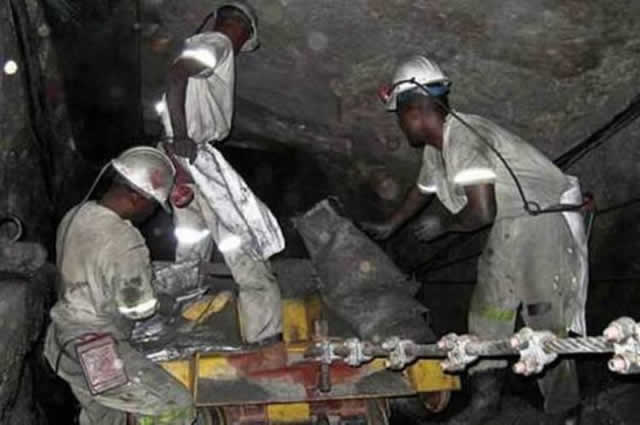EDITORIAL COMMENT: The ball is in platinum miners’ court

 THE Africa Mining Vision that was adopted by Heads of State and Government at the February 2009 African Union summit following the October 2008 meeting of African Ministers responsible for Mineral Resources Development was the continent’s own response to tackling the paradox of great mineral wealth existing side by side with pervasive poverty.
THE Africa Mining Vision that was adopted by Heads of State and Government at the February 2009 African Union summit following the October 2008 meeting of African Ministers responsible for Mineral Resources Development was the continent’s own response to tackling the paradox of great mineral wealth existing side by side with pervasive poverty.
It advocates thinking outside the “mining box” and is not just a question of improving mining regimes by making sure that tax revenues from mining are optimised and that the income is well spent — although that is clearly important.
Rather it’s a question of integrating mining much better into development policies at local, national and regional levels.
That means thinking about how mining can contribute better to local development by making sure workers and communities see real benefits from large-scale industrial mining and that their environment is protected.
This is the vision that the Government is trying to achieve by ensuring that platinum mining companies operating in the country value-add the minerals that they are taking out of the country unprocessed through the establishment of a refinery, failing which it will continue imposing a 15 percent levy on exports.
Zimbabwe is therefore within its right to insist on the establishment of a refinery more so when value addition and beneficiation is one of the four clusters that anchor the Zim-Asset.
The establishment of a refinery will see Zimbabwe getting full value for its minerals which in turn will enable Government to collect more taxes which means more inflows into the fiscus and it will also bring in much need liquidity.
It will also translate into more jobs and will allow Government to embark on projects that benefit ordinary Zimbabweans especially those that are living within the environs of the mining ventures.
Besides platinum is not the only mineral that Government is insisting should be valued added before it’s exported. There is also chrome, where Government banned raw chrome exports.
This has already resulted in the establishment of chrome smelters by both Monachrome and Afrochine.
While it is given that setting up a platinum refinery will cost a lot of money and will take a bit of time, Government has been more than fair on the platinum mining companies because, as rightly pointed out by Finance Minister Patrick Chinamasa, they were given ample time to come up with a concrete roadmap, but they chose to dilly-dally and now the chickens have come home to roost.
Government, while being tough on the platinum companies, is still willing to negotiate and therefore it is prudent that the platinum companies do not spurn the offer, but grab it and do what they are supposed to do.
Platinum companies need to be reminded that our minerals are a finite resource and we need to ensure that we get the best out of them when they are still available.
Besides Zimbabwe is not the only country in the world that is insisting on value addition of its minerals. Indonesia, which is among the world’s biggest suppliers of natural resources, halted all mineral ore exports last year to try to promote domestic processing.
Platinum companies must do the right thing; the ball is indeed in their court!








Comments